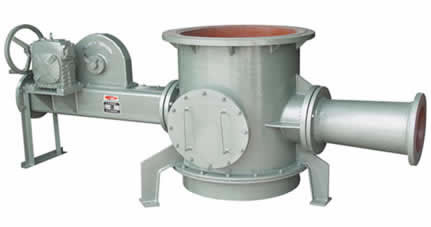
Myanmar low pressure pneumatic conveying pump customers come to see ZHONGYUAN assists in reducing costs and increasing efficiency in the calcium chloride powder conveying industry
The logic behind Myanmar's economic prosperity lies in the global demand for industrial products. As developing nations such as China, India, and Vietnam grow their economies, they require vast amounts of raw materials and finished goods. Myanmar, endowed with abundant natural resources like timber, minerals, and agricultural products, becomes a crucial supplier to meet these demands. The influx of foreign investments, particularly from neighboring countries and international companies, has propelled infrastructure development and increased local production capacity. Consequently, this global industrialization trend has significantly boosted Myanmar's economy, leading to its recent economic growth and prosperity.

The study on dust control measures in the dust-free conveying process of calcium chloride powder in Myanmar emphasizes minimizing airborne particulates to maintain a clean and safe environment. The research delineates various methods for preventing dust emissions, including the use of sealed transport systems, negative pressure ventilation techniques, and the application of high-efficiency dust collectors. These measures aim to contain the powder within the conveying line and eliminate the potential for air pollution or worker inhalation risks. Special attention is given to designing the conveyor system with minimal points of air leakage, ensuring that all transfer points are equipped with efficient sealing mechanisms. Additionally, regular maintenance schedules and monitoring protocols are established to guarantee the ongoing effectiveness of the dust control strategies. This research contributes to the development of environmentally responsible industrial practices and promotes workplace safety in the handling of calcium chloride powder.

In the process of conveying calcium chloride powder using low-pressure pneumatic conveying pumps, noise control technology plays a crucial role in maintaining operational efficiency and employee safety. Here are some strategies to manage noise levels:
1. **Pump Design Optimization**: Select pumps with built-in noise reduction features such as sound enclosures or vibration dampening materials. These design choices can reduce the amount of airborne and structural noise transmitted.
2. **Vibration Isolation**: Utilize vibration isolation mountings for the pump and its components. This technique helps to decouple the machinery from its foundation, significantly reducing noise transmission to the surrounding environment.
3. **Sound Enclosures**: Implement acoustic enclosures that encapsulate the pump and associated equipment. These structures are designed to absorb and reflect sound waves away from the source, effectively controlling noise levels within the work area.
4. **Noise Monitoring**: Regularly monitor noise levels at various locations around the pump system. Using this data, you can pinpoint areas where noise is most intense and apply targeted noise control measures.
5. **Maintenance and Upkeep**: Regular maintenance checks can prevent unexpected mechanical failures that could lead to loud noise events. Proper lubrication, alignment, and tightening of loose parts all contribute to quieter operation.
6. **Acoustic Treatments**: Apply acoustic treatments such as acoustic foam or panels within the enclosure walls to help absorb internal reverberations. This method helps to reduce the overall noise level by preventing echoes.
7. **Staff Training**: Educate operators on noise management techniques and provide them with the necessary personal protective equipment (PPE). This ensures both the well-being of staff and adherence to occupational health and safety standards.
8. **Energy Efficient Operations**: Implement energy-efficient practices to run the pump more smoothly and efficiently, which indirectly reduces the likelihood of loud operating noise.
These strategies, when combined, create a comprehensive approach to managing the noise emitted by low-pressure pneumatic conveying pumps during the transport of calcium chloride powder.
Overall, with the continuous development of Myanmar's economy and the acceleration of its industrialization process, there is a growing demand for environmental protection in the transportation of calcium chloride powder. As an important conveying equipment, the market demand for low-pressure pneumatic conveying pumps is also increasing. In the future, with the advancement of technology and the improvement of environmental protection requirements, the research and application of low-pressure pneumatic conveying pumps will become more extensive and in-depth, making greater contributions to the industrial development of Myanmar and even the entire country. Be confident, self-reliant, uphold integrity and innovation, strive vigorously and advance bravely! Working together to create brilliance, we wish ZHONGYUAN customers of Myanmar's low-pressure pneumatic conveying pumps: In the days to come, let us be grateful for our cooperation and forge ahead. Let us work hard together for a better future. May our business flourish, and may we bless each other. We hope that our partners will have smooth sailing in everything they do.
